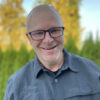How do we live as true neighbours in a tolerant society?
We are relatively new to our neighbourhood. We’re surrounded by great people with rich and varied stories—and I know very few of them. It takes time. It takes vulnerability. It takes consistency to know strangers—even strangers nearby—to the point where they will crack open not only their door, but their worldview.
A family in our neighbourhood has been through tough stuff. I am not privy to many of the details, but it’s a second marriage and their kids—when they’re around every other weekend—often pop by to play with our children. Occasionally the dad and I stop long enough to get beyond the obligatory “How ya doing?” and hand wave.
It was after a number of months of these interactions that I took the chance. I thought I had earned the right in the relationship. I felt free to take a step into the unknown: I told him we’d be happy to take their kids to church with us if they’d like.
A new neighbour emerged. Not the one I knew only by face and vocation, but one who also had convictions—and they weren’t the same as mine. With straightforward clarity he made sure I understood they were atheist and there would be no tolerating of God-talk in their home. If the kids went to Sunday school it would open up unwanted questions.
Insert awkward silence, followed by a sharp turn back to chatting about the garden he was building. We were neighbours, sent back to our corners of tolerating each other like good Canadians next door from worlds apart.
How am I to relate to my neighbour in a nation that declares this: “We have developed a unique federal style of government that is based on compromise and co-existence”1. This system has helped shape a great part of the world to live—the desire of many—and that should not be taken for granted in the least. At the same time, it does bring some clarity to Marshall McLuhan’s insight, “Canada is the only country in the world that knows how to live without an identity.”
In other words, we’re quite comfortable with being out of touch with our depths, with compromise, and will tolerate lots because we don’t really know who we are. This generally eliminates any sense of public—or even neighbourly—discourse over things that matter deeply. We just don’t go there; and we’re fine with that. Consequently, like a baker trying to find a workable substitute when we’ve run out of eggs, into our awkward silences we throw in pseudoidentity markers and turn to debates about the Flames, Jets or Canadiens.
So, as a follower of Jesus—who I am convinced is Lord of all—do I just shake the dust off my feet because my neighbour is closed to the intrusion of God in his home? Is that what Jesus meant when He said to His disciples, “If anyone will not welcome you or listen to your words, leave that home or town and shake the dust off your feet” (Matthew 10:14)? If tolerance is the cultural water we swim in as a people, won’t shaking dust every time I encounter hard ground simply create more of a desert-existence in the Great White North?
Jesus’ words are about welcome and hospitality. Does our neighbour slam the door in our face? Do they give us the one finger salute—or even worse nothing at all—instead of a wave? Well, then yes, don’t keep banging your head against the wall. However, if he keeps asking how you’re doing, if he is happy to chat about work and offers you a beer, well, then there remains a welcome. He is living by that value of tolerance that both allows for neighbourliness while running the risk of being utterly dismissive.
My neighbour knocks on my door. I open it and there he stands. He looks shaken and quickly reveals that a good friend has committed suicide. It hits close to home and neighbourliness takes on a new reality. We are not just neighbours tolerating one another’s hidden worldviews, we are men, flesh and blood, and we hurt. I tell him I will pray for him. He is grateful for that and I try not to smile at the irony. I welcome him, grateful he has not shaken the dust off his feet in relating to me.
And I become more convinced that the only way past the shallow waters of tolerance is not arguments, but love; longsuffering, patient, deep love.
About


